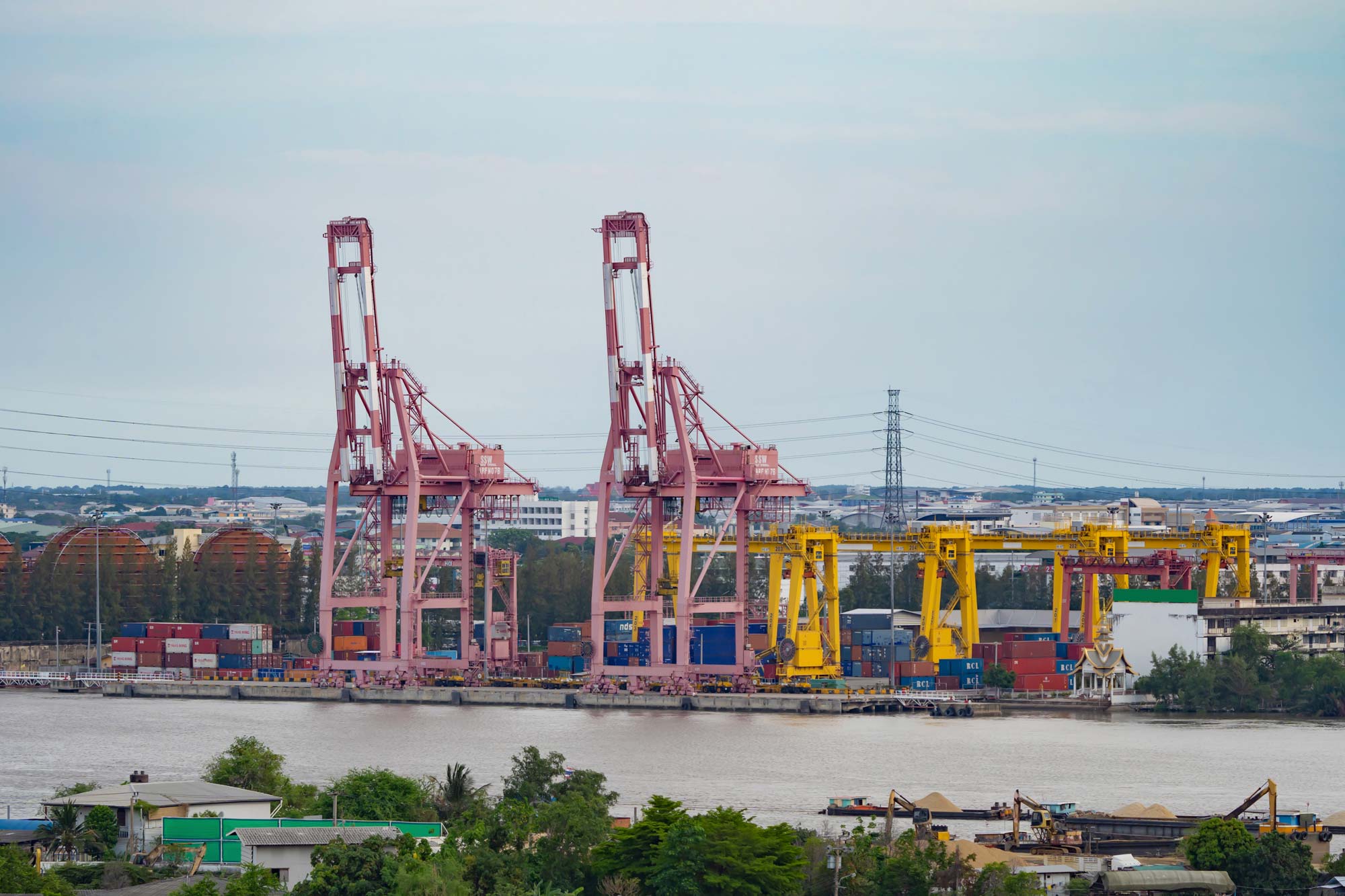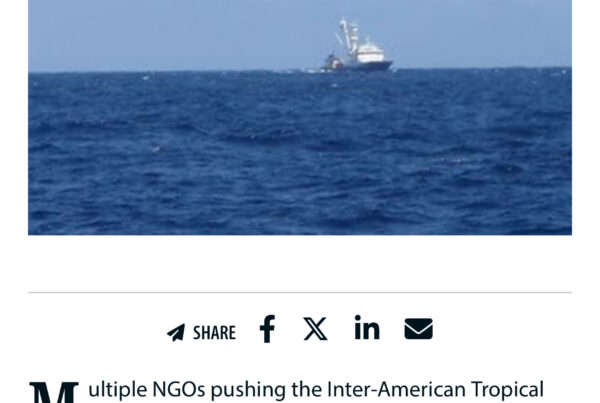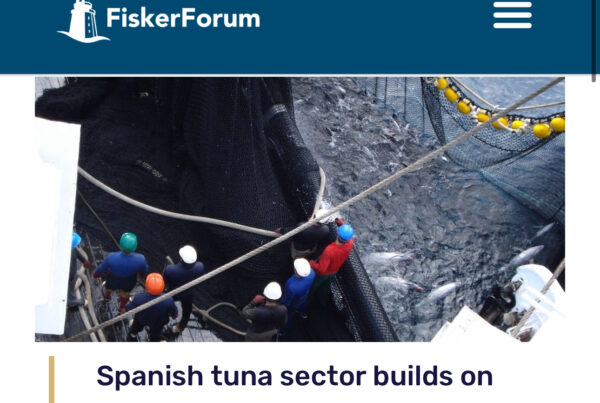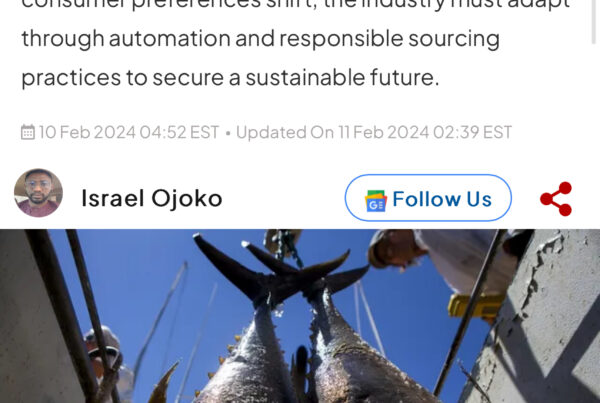IATTC Meeting Closes With Agreements on Transshipment and Monitoring
The 100th meeting of the Inter-American Tropical Tuna Commission (IATTC) ended on 5 August with agreements on transshipment and compliance, and a commitment to adopt a harvest strategy for north Pacific albacore at next year’s meeting.
IATTC members followed the lead of the International Commission for the Conservation of Atlantic Tunas (ICCAT) and the Indian Ocean Tuna Commission (IOTC) by adopting stronger oversight for transshipment at sea. Transferring catches from a fishing vessel to a larger carrier vessel which takes fish to port is a common practice, but according to a statement by the Pew Charitable Trusts, which holds observer status at the IATTC, there were loopholes in the data collection requirements that allowed for the misreporting of catch, or in some cases, no reporting at all. The latest decision by the IATTC closes those loopholes. Continue reading here (Source: SeafoodSource).
China Eyes 4 Unsecured US Marine National Monuments in the Pacific
In the deep Pacific Ocean, America’s four enormous Marine National Monuments are under siege by China. More than just ecological gems, the sprawling refuges are also underappreciated national security resources, offering quiet hiding places for America’s missile submarines, out-of-the-way testing-grounds, and training areas for various U.S. Defense Department assets.
In total, America’s deep-ocean National Monuments lay claim to almost 1.2 million square miles of pristine ocean, and China, as it pours billions of dollars into seizing much of the 1.4 million square mile South China Sea, is already looking to grab other unsecured Pacific territories, positioning to compromise the sanctity of American’s big Marine preserves. To prevent international encroachment, poaching and other sovereignty-degrading insults, America’s fragile Pacific frontiers need far more dedicated wildlife management and enforcement resources. Continue reading here(Source: Forbes).
FFA Welcomes US Announcement of Significant Increase to Financial Contribution Under Multilateral Tuna Treaty with Pacific Island Countries
The Pacific Island Forum Fisheries Agency (FFA) has welcomed the announcement today from the United States Government that it will significantly increase its annual financial contribution to the Multilateral Tuna Treaty between the U.S. and Pacific Island countries.
The announcement was made by US Vice President Kamala Harris, appearing virtually before the 51st Pacific Forum Leaders meeting being held in Suva, Fiji. Fiji’s Prime Minister Frank Bainimarama welcomed the Vice President and the Meeting was MC’d by FFA’s Director General, Dr Manu Tupou-Roosen.
Vice President Harris confirmed that the US government would be seeking Congressional approval to increase its contribution from the current US $21 million per annum to US $60 million per annum, for the coming ten-year period up to 2033.
Continue reading here (Source: Pacific Islands Forum Fisheries Agency).
US Seafood Inflation Outpaces Record Grocer Inflation
Overall grocery inflation reached a record in July, but inflation for seafood products outpaced total grocery inflation, according to new data.
The inflation hitting seafood products is outpacing total grocery inflation, and is up 16.8 percent in July versus a year ago, data and tech firm Numerator told SeafoodSource. Frozen seafood grocery prices also soared 14.4 percent versus a year ago – but shrimp and prawns are below the average rate of inflation, rising 8.5 percent.
Overall grocery inflation reached a record high of 15.4 percent in July, according to Numerator, driving overall speeding up 26 percent. Continue reading here (Source: SeafoodSource).
In Philippines’ Tuna Capital, Fishermen Are Reeling From High Fuel Prices
Veteran longline fisherman Miguel Mayola eased his boat gingerly into the port of General Santos City after a month at sea with his crew in deep waters off Bongao, a finger-shaped island at the southwestern tip of the Philippines.
The 39-year-old captain, his leathery face weather-beaten by years of toiling in an industry that has made many buyers rich from the tuna he fishes, was now waiting to see whether his prized catch could net him enough money. He needed the cash for his family and 13-man crew, and to fund another fishing expedition.
“We have to endure rough seas in the southern waters. Sometimes we have a good catch, but other times we are unlucky,” he told BenarNews in the local Visayan dialect.
Continue reading here (Source: Benar News).
Scanning Tuvalu’s Water For Illegal Fishing
Nearly 60 satellite scans of Tuvalu’s exclusive economic zone (EEZ) have been obtained since December 2021 as part of a pilot project under the World Bank-funded Pacific Islands Regional Oceanscape Program (PROP).
This initiative, designed to chart the extent of fishing activity by non-authorised or non-reporting vessels, is a collaboration between the Tuvalu Government’s Fisheries Department and New Zealand company Starboard Maritime Intelligence.
‘What Tuvalu is doing here is important, because access fees paid by foreign vessels fishing their waters represent more than fifty-five per cent of government revenue,’ said fisheries compliance advisor Francisco Blaha, who has worked in Pacific Island fisheries for over 30 years and collaborated with Starboard in this project.Continue reading here (Source: Fisker Forum).
Maldives Fisheries Minister Hussain Rasheed Hassan Hoping for Tuna Turnaround
SeafoodSource: How has the Maldives’ seafood sector been affected by the COVID-19 pandemic?
Hassan: Much of our economy relies on tourism, but tourist arrivals just dropped and finally stopped at the beginning of the COVID pandemic. At that time, there was no practical employment apart from the government sector. But our fishermen still went fishing, and the reason is tuna fishing is not just for exports in the Maldives, it’s also the main source of protein for us. But for us, the challenge was to our fresh yellowfin export business, because we lost most of our flights in and out of the country during the pandemic and the cost of shipping by air and also by sea freight went up astronomically. The cost of shipping a container of frozen tuna rose two, three, even six times. So this was really a very challenging situation, but despite all of that, our fishermen continued to go fishing and bring in fish, and because the employment was so critical, the government helped the industry to buy the fish by providing financing. And the industry faced a challenge in having to do new things with all that product, whether it was freezing the fish or turning it into canned tuna. Continue reading here (Source: SeafoodSource).



